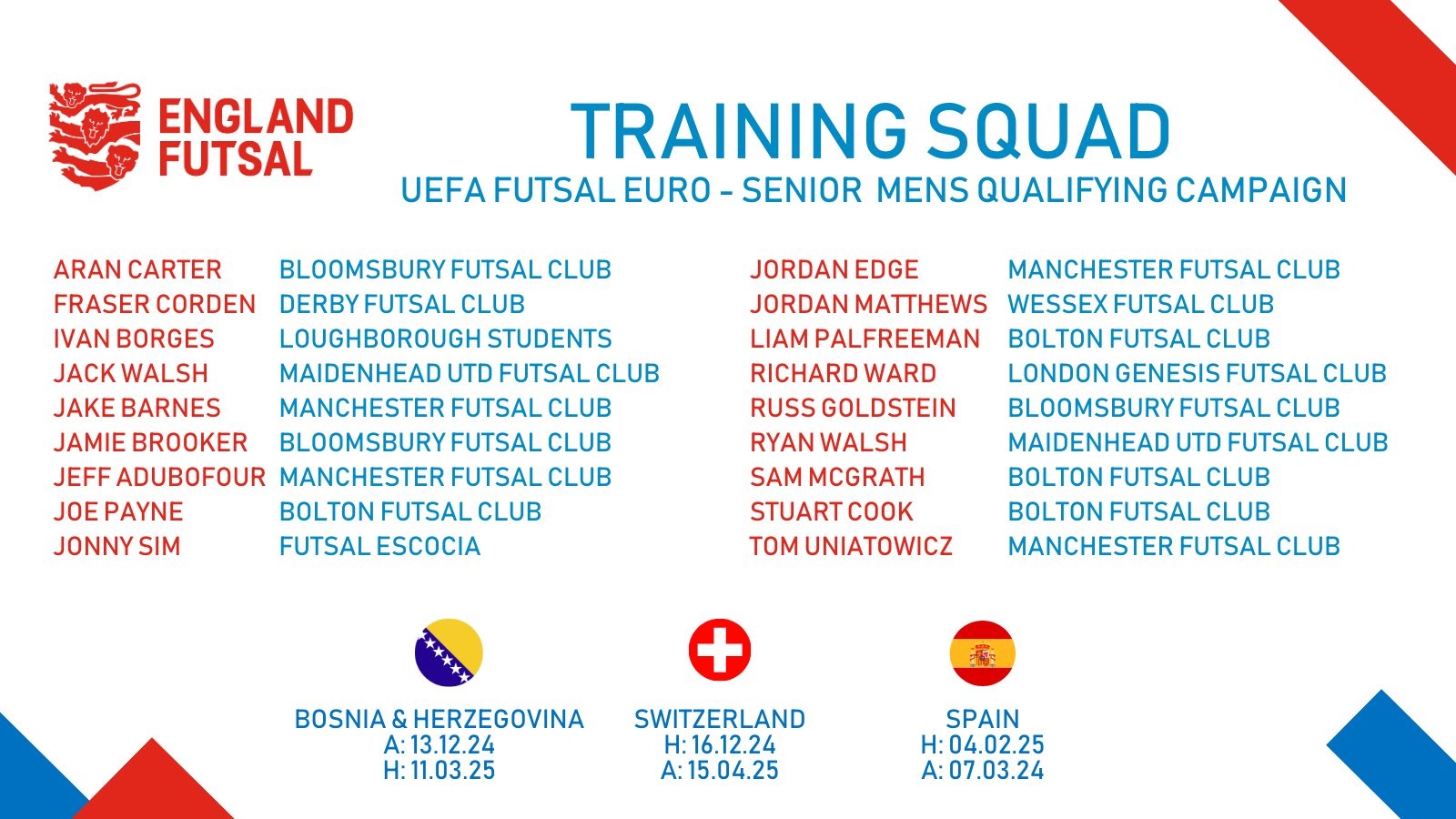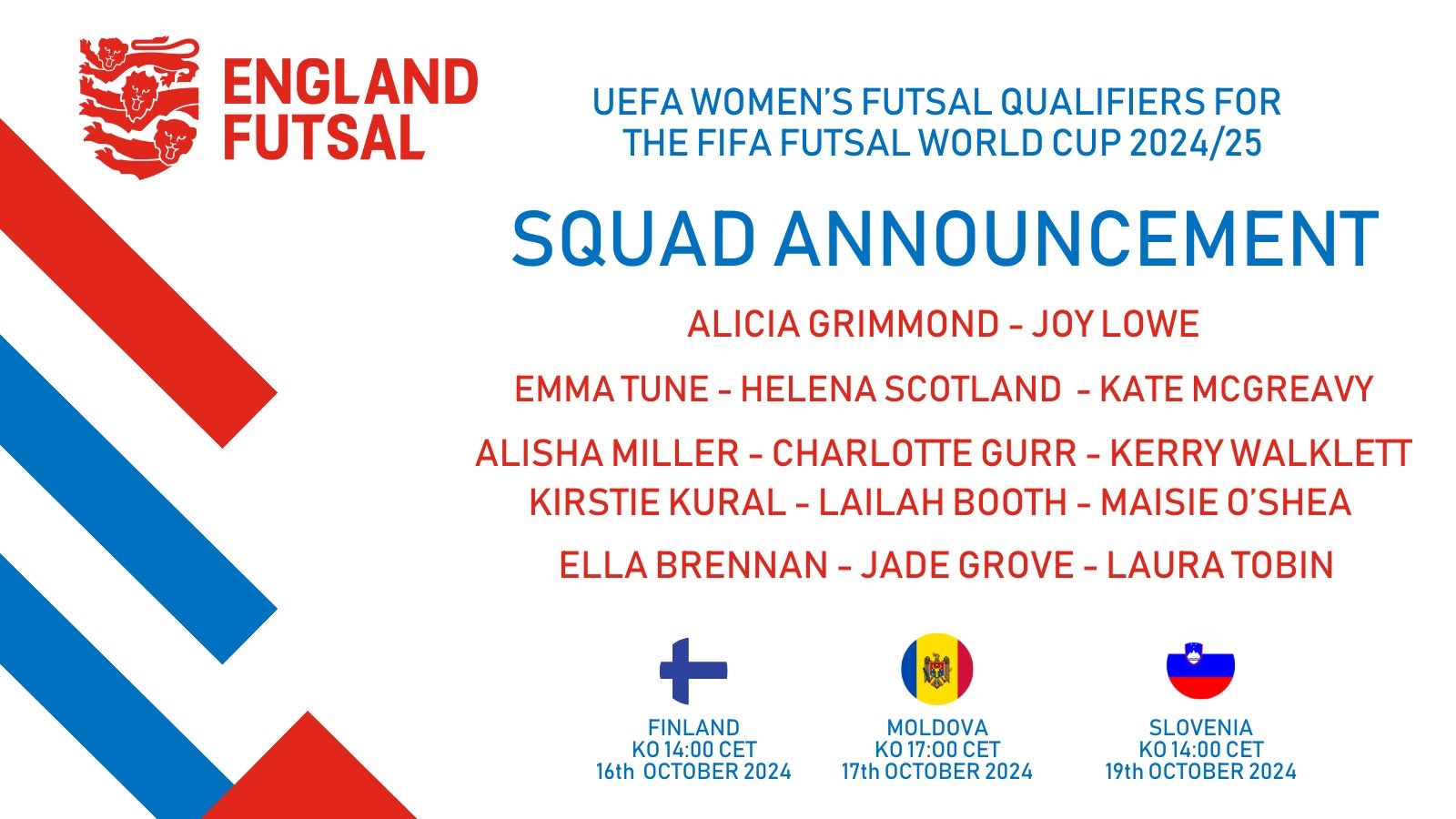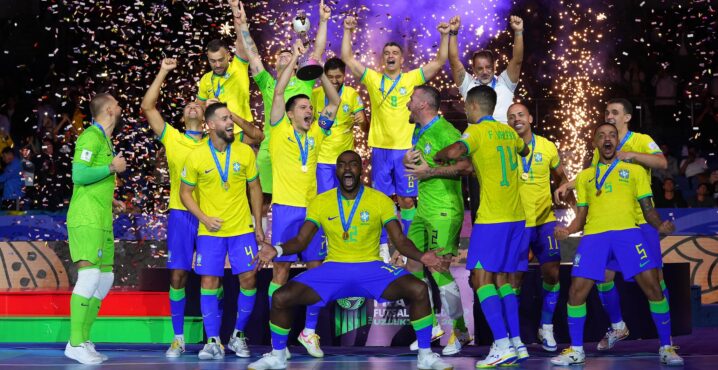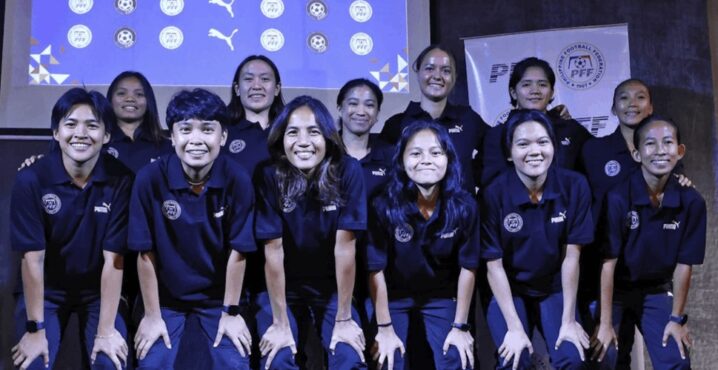Estimated reading time:18 minutes, 25 seconds
Navigating the Challenges of Leadership, Funding, and Community Engagement in England’s Futsal Development
On the 20th of December, 2022, an announcement was made by the Football Association that drew wide support and celebration online, the statement concerned the creation of England Futsal.
Background and Establishment
The article by the FA, I paraphrase, said the following:
“The Football Association (FA) has announced the launch of “England Futsal,” a new independent venture aimed at managing and developing futsal operations in the country over an initial five-year partnership. This initiative will be led by Stephen Mitchell, a seasoned sports administrator, and focuses on providing long-term stability and growth for futsal in England. As the official delivery partner, England Futsal will oversee grassroots development, including coach education, referee development, regional youth leagues, and a talent inclusion program to support participation for both boys and girls.
The FA retains overall responsibility for futsal governance, ensuring adherence to regulations, discipline, and sanctioning, while England Futsal is set to manage the Under-19 Men’s and Women’s national teams for a trial period of two seasons. The first major competition under this partnership will be the Men’s Under-19 England Futsal team’s participation in the UEFA European Under-19 Futsal Championship qualifiers in Croatia in 2023.
Graeme Dell, the Chair of The FA Futsal Committee, expressed optimism about this new collaboration, saying: “The FA Futsal Committee welcomes the establishment of England Futsal as the official delivery partner for the format. This new partnership places the future of Futsal in England on a firm footing that provides stability and will ultimately benefit players and participants up and down the country, with solid structures in place to ensure many more people can enjoy the game in years to come.”
This partnership aims to ensure that futsal enjoys long-term stability, is governed effectively, and remains a community-centered sport. The collaboration also includes maintaining close working relationships with key organizations, such as the National Futsal Series and National Futsal League.”
In these few paragraphs there are interesting choices of statements and words which we have highlighted and provided below:
- independent venture aimed at managing and developing futsal operations
- led by Stephen Mitchell, a seasoned sports administrator
- stability – mentioned three times – we highlighted the first and the second in black and the third in red. The first says providing, the second starts with firm footing and the third begins with aims – so as you get further into the article you feel like the confidence of the initial statements deplete
- optimism – meaning hopefulness and confidence
- this new partnership places the future of Futsal in England on a firm footing
- provides stability and will ultimately benefit players and participants up and down the country
- solid structures
- The collaboration also includes maintaining close working relationships with key organizations, such as the National Futsal Series and National Futsal League
The structure of the article effectively sets the stage for telling the story of England Futsal’s journey so far. The return of the England U19 futsal team at the UEFA Futsal U19 Euro qualifiers was met with widespread excitement, especially after a two-year absence of any elite national futsal program following its cancellation by the FA in September 2020. Despite limited time to train together, the team performed impressively, securing victories in the qualifying group against Malta, Lithuania, and Estonia. However, the challenges intensified in the main round, as they faced more experienced teams that had likely spent more time together preparing and developing their strategies
Challenges Faced
Since then, England Futsal has taken significant steps to enhance the sport’s development. Matt Fejos was appointed as their Coach Development and Mentor Lead to oversee the Coach Mentor Programme, while Sion Kitson was named Head Performance Coach and Technical Lead, having already led the U19 team at the UEFA Futsal U19 Euros. Demonstrating further growth, England Futsal launched a National Youth Futsal Cup for under-16s, to replace the Pokemon Futsal Cup that had been run by the FA. The competition featured multiple stages: Knockouts hosted by a home team, semi-finals, and a Grand Final played on June 1–2, 2024.
The momentum seemed promising, especially with the announcement that the FA had approved the formation of senior men’s and women’s teams for the upcoming Men’s EURO qualifiers and the inaugural FIFA Futsal World Cup in 2025.
It’s important to remember that England Futsal was established as an independent venture with the expectation that it would be self-funded. This brings into question why the initial focus was heavily placed on achieving long-term stability without clearly outlining the short-term strategies needed to build a solid foundation, especially for managing senior national teams. When I first reviewed the launch announcement, my immediate concern was the apparent gap in addressing how short term operational needs would be met to create a sustainable pathway forward.
As the 2025 FIFA Women’s Futsal World Cup qualifiers approached, the pressure was mounting for England Futsal to confirm their participation. Amidst this anticipation, England Futsal released a series of confusing and inconsistent updates, which led to numerous questions from the futsal community. Despite attempts by Futsal Focus to gain clarity from Stephen Mitchell, no response was received.
In the lead-up to the publication of Futsal Focus’s article, “England Futsal’s Fundraising Update: A Critical Review of Communication, Transparency, and Community Engagement,” England Futsal made the highly anticipated announcement that the women’s team would indeed be ‘on the plane’ to Moldova. This declaration was celebrated widely within the English futsal community and the futsal community at large. Following this development, the men’s team’s participation was gradually confirmed, and recently, the squad lists for both teams were published, marking a significant milestone for England Futsal. Here are the squads below:
Men’s squad:
*Regarding the fixtures and typos: England plays Bosnia & Herzegovina at home on the 11th of April 2025, not March
Women’s squad:
If you are wondering who the women play for their clubs are:
- Alicia Grimmond – London Helvecia
- Joy Lowe – Bolton Futsal Club
- Emma Tune – London Helvecia
- Helena Scotland – Chiltern Futsal Club
- Kate McGreavy – Bloomsbury Futsal Club
- Alisha Miller – Birmingham WLV
- Charlotte Gurr – London Helvecia
- Kerry Walklett – Hartpury Futsal
- Kirstie Kural – Bolton Futsal Club
- Lailah Booth – Bolton Futsal Club
- Maisie O’Shea – Chiltern Futsal Club
- Ella Brennan – Derby Futsal Club
- Jade Grove – Hartpury Futsal Club
- Laura Tobin – Bolton Futsal Club
The Funding Crisis
The phrase ‘on the plane,’ as previously mentioned in the article regarding the women’s team. While many assumed this to be a simple expression of confirmation, the reality was quite literal. As we later discovered as some selected players had to resort to setting up crowdfunding pages or seeking sponsorships through social media platforms to secure the funds needed and their place in the squad, covering costs for training sessions leading up to the qualifiers, and associated travel and accommodation costs.
When the men’s team was announced, there was another wave of celebration across the community. However, within hours, a stark reality emerged: England Futsal had not managed to raise the necessary amount, and another £95,000 is needed, leaving the men’s participation in serious jeopardy unless these funds can be secured soon as the deadline for funds confirmation is the 25th of October or a formal withdrawal which gives the players/ community 5 weeks to secure the needed funds (quoted on the England Futsal’s last update on the 20th of September). This is also likely the reason why neither England Futsal nor the FA has brought attention to the 2024 FIFA Futsal World Cup currently taking place in Uzbekistan across their social media channels.
The FA’s Decision and Its Implications
The FA’s decision to grant a five-year deal to England Futsal, a start-up organization lacking its own financial resources, has raised significant concerns. Despite being one of the wealthiest football associations in the world, with annual revenues nearing £500 million in the 2022-23 financial year, the FA entrusted the management and development of futsal to this independent venture without providing any substantial initial funding or support for the men’s and women’s senior national teams in FIFA and UEFA competitions. Surprisingly, the FA approved and publicly celebrated the entry of these teams into the EURO and Women’s World Cup qualifiers, even though England Futsal did not have the necessary finances in place. This raises an important question: wouldn’t it have been more responsible for the FA to require proof of funding from England Futsal before approving such significant commitments?
Furthermore, it casts doubt on whether England Futsal was ever set up for success under these conditions. And, on the flip side, why would England Futsal agree to such terms without ensuring a stable financial foundation? If they ultimately fail to secure the necessary funds and the community cannot bridge this gap, it would be unfair to place the blame on a community that was not involved in the initial decision-making process. This situation suggests a fundamental lack of foresight and raises serious questions about the FA’s and England Futsal’s approach to nurturing futsal in England.
Transparency and Communication Issues
At the start of this article, we highlighted that the concept of stability was mentioned three times in the England Futsal announcement. However, achieving long-term stability requires a strong foundation, and recent developments have clearly shown that England Futsal, after nearly 2 years of activity, lacks a solid base to build upon for the senior national team structure, now that the onus for raising the needed funds has been passed to the players and the futsal community. It raises the question: why announce national teams when the necessary financial resources are not secured?
As we reflect on England Futsal’s struggles with transparency and leadership, it’s crucial to also consider the role that the wider futsal community plays in this narrative.
In addressing the challenges faced by England Futsal, it’s also important to recognize the silence that has largely persisted within the wider English futsal community. Over the past 16 years, despite facing consistent issues related to funding, transparency, and leadership, there has often been an air of hesitancy to raise concerns or challenge the status quo with the FA and now England Futsal. We are told this silence is not born out of apathy but rather a fear of potential repercussions or a sense of futility, a belief that individual voices may not be powerful enough to instigate change. In addition to the struggles with those leading futsal development, we are also told that characters within the community itself also cause harm, blocking any attempt by anyone to try and make a change, jealousies among clubs, egos, and other issues.
However, the strength of any sporting community lies in its collective voice; therefore, the issues mentioned need to be addressed. By engaging in open, respectful, and solution-focused dialogue, the futsal community can contribute to the growth and stability that the sport so desperately needs. The challenges faced by England Futsal are not theirs to bear alone—change is a shared responsibility. By coming together to question, support, and hold leadership accountable, the futsal community can foster an environment where transparency, professionalism, and growth are not just aspirations but realities.
It’s time for the English futsal community to find its voice, not in a confrontational manner but as a unified force that seeks to build a stronger foundation for the sport. By stepping forward and engaging in constructive conversations, they can help shape the future of futsal in England and ensure that the promises made to the community are fulfilled.
While the English futsal community—and the wider futsal world—are eager to see England compete at the senior level, it would be more responsible for the England Futsal to be transparent about its current limitations. Instead of pushing forward prematurely, England Futsal should openly communicate the areas where the organization is struggling and actively seek support from within the community or outside it, tapping into needed expertise to help strengthen and guide the organization’s journey toward stability and growth. This collaborative approach would not only foster trust but also ensure that England Futsal is genuinely prepared for long-term success. At this stage, I have to question whether they are truly ready, and this isn’t meant as a criticism.
If England Futsal had openly admitted that they weren’t yet prepared to launch senior teams, it would have been a difficult truth but an honest one. It might have made more strategic sense to concentrate on building a solid foundation first—by developing training camps across different age groups for both genders, from U14 to U19. Increasing the number of coaches with UEFA B licenses within clubs, and inviting these coaches to work alongside Matt and Sion in these camps could have provided more sustainable growth. Whilst also building on the development of their national futsal youth competition, opening up further age ranges and for international teams to come and compete in the competition. A certain stage of the competition could be designated for international clubs, making the competition even more attractive for those who wish to compete against clubs of a higher standard.
Seeking targeted support and sponsorship for these developmental activities would likely be more cost-effective and manageable than attempting to raise over £200,000 to fund both men’s and women’s senior teams for international competitions. If the senior teams do not perform well in these tournaments, it’s unlikely that such results will help ease attracting the necessary support or funding in the future. Taking a gradual and well-supported approach would have been a more sustainable path toward building a competitive and stable futsal program in England. Here are practical suggestions that could help the organization build a stronger foundation and secure the necessary support from the futsal community and beyond:
- Establish a Transparent Fundraising Platform: England Futsal could create a dedicated and transparent crowdfunding platform or page that outlines their specific financial needs, goals, and progress in real-time. This would allow supporters to see exactly where their contributions are going and how much more is needed to reach the goals, fostering a sense of community ownership and accountability. Given that Michael Skubala (owner of England Futsal) and Graeme Dell (FA Council representative for Futsal and former Chair of the dissolved Futsal Committee at the FA) have been deeply involved with national teams for many years, they likely have a comprehensive understanding of the financial requirements. This raises the question: why weren’t fundraising activities initiated earlier, with an open and transparent dialogue about financial needs directed at the futsal community? An earlier, honest approach would have allowed the community more time to rally around and support the teams effectively, potentially easing the current financial pressures.
- Establish a Supporters’ Advisory Group: Create an advisory group composed of futsal enthusiasts, coaches, club representatives, and former players. This group could serve as a bridge between England Futsal and the broader community, offering insights, feedback, and ideas for growth. It would help ensure that the organization remains connected to its grassroots while leveraging expertise from within the community.
Engaging with England Futsal has not been met with the understanding or transparency one might expect. In our experience, attempts to send articles for comment have been ignored. Others, such as Peter Sharples (the former Commercial Director of the National Futsal League who secured the Liga Nacional de Futbol Sala (LNFS) and Joma as partners during his time in his role), have faced similarly questionable responses. You don’t have to agree with Peter or support his and the perspective of those like him, but critics would likely be less vocal if England Futsal had demonstrated genuine transparency and a clear developmental pathway toward establishing senior national teams, a year ago.
Instead of directing their frustrations solely at the FA, critics like Peter have turned their attention to England Futsal due to this lack of openness. A particularly concerning incident was when Stephen Mitchell responded to a LinkedIn post by Peter with a clown emoji. While it is understandable that emotions can run high in such a challenging environment, it is essential for those in leadership positions, such as Stephen Mitchell, to uphold a standard of professionalism in all forms of communication. The incident involving the clown emoji, though likely a moment of frustration, highlights the importance of maintaining respectful and constructive dialogue, especially when representing an organization like England Futsal. By engaging in more thoughtful and measured responses, England Futsal’s leadership can set a positive example and foster an environment of mutual respect, which is crucial for building credibility and trust within the futsal community. Such actions as posting the clown undermine the credibility of England Futsal and detract from the more significant issues at hand:
You might feel that this article criticizes England Futsal, and I’ve even been accused of focusing solely on the negatives before. However, this couldn’t be further from the truth. I have praised their establishment and genuinely want to see them succeed as their success is in the interest of futsal. But I’ve been genuinely shocked by the approach and behaviour of some of those involved, not just in England Futsal, but in the FA Futsal Committee, which is now dissolved. As observers and supporters, we have every right to ask questions and seek answers when it feels like England Futsal and the FA are not treating the community with the respect it deserves.
I’ve spoken to clubs about whether they’ve seen Stephen Mitchell or Graeme Dell attending National Futsal Series games or if they were present at Manchester Futsal Club’s recent UEFA Futsal Champions League preliminary round. From what I’ve been told, neither attended, yet they made time to travel to Switzerland to attend the EUROs qualification groups live draw at UEFA’s headquarters for the men’s national team who may not even compete at all in the competition if the needed £95,000 is not raised. This disconnect suggests that despite 16 years of struggling, a genuine shift in leadership outlook/ perspective and engagement is needed. The question remains: where will the leadership that truly prioritizes the futsal community come from to ensure the respect, transparency, and commitment that this sport deserves?
Moving forward
The journey of England Futsal, from its celebrated launch in 2022 to the challenges it currently faces, underscores the complexities of building a sustainable and transparent structure for futsal in England. While the initial vision promised stability, growth, and a community-centered approach, recent developments have exposed significant gaps in financial planning, communication, and engagement with the very community it aims to serve. This reality, coupled with the lack of necessary funding and clear strategic direction, has placed England Futsal in a precarious position. With just 5 weeks remaining to confirm the men’s futsal national team’s participation in the Men’s EUROs, urgent action is needed.
To progress effectively, England Futsal must adopt a more transparent and strategic approach, starting with acknowledging the areas where it currently falls short. A critical step would be to establish open lines of communication with the futsal community, actively seeking the expertise and support needed to build a stronger foundation. The community’s passion and willingness to support futsal’s growth are evident, but this enthusiasm must be matched by an honest commitment from England Futsal to engage openly and address the challenges they face.
Introducing transparent fundraising mechanisms would be a significant step toward regaining credibility. Establishing clear financial goals and demonstrating how funds will be allocated can foster trust and a sense of ownership within the futsal community. In addition, forming advisory groups comprising futsal enthusiasts, coaches, players, and club representatives can bridge the gap between England Futsal and the grassroots community, ensuring that their insights and feedback inform decision-making processes.
For England Futsal to fulfill its potential and truly become a beacon for futsal development, it must also demonstrate a willingness to collaborate with key stakeholders. This includes working closely with organizations like the National Futsal Series and National Futsal League, engaging with futsal clubs, and developing sustainable pathways for player and coach development across all levels. By addressing these areas, England Futsal can transition from being an organization struggling to establish its footing to one that embodies the stability, growth, and community engagement that was envisioned at its inception.
However, it’s not solely up to England Futsal to drive this change. The FA must step in now to ensure the long-term viability of the sport. As one of the wealthiest football associations in the world, the FA has the resources and influence to make a significant difference. By providing immediate funding support, facilitating sponsorship opportunities, and establishing clear oversight mechanisms, the FA can help lay a solid foundation for futsal’s development in England.
Ultimately, the success of England Futsal will depend on its ability to listen, adapt, and actively involve the community it serves. With the combined effort of England Futsal, the futsal community, and the FA, there is an opportunity to transform the current challenges into a platform for growth and success. If these steps are taken, the vision of a thriving, competitive futsal program in England can become a reality, fulfilling the promise that was made at its inception and securing the sport’s future for years to come.
Organ Donation
Futsal Focus is a supporter of Dáithí Mac Gabhann and his family’s campaign to raise awareness of Organ Donation. We encourage our readers to learn more about Organ Donation: https://www.organdonation.nhs.uk/
Futsal Focus
You can read more articles about International Futsal by going to the top navigation bar or by clicking here
If you like this article and would like to keep updated on Futsal news, developments, etc. You can now follow Futsal Focus via Google News. By following our page which will send you an alert as soon as we publish an article. Please click here and follow us on Google.
You can also keep updated on Futsal news, developments by submitting your email below in the Subscribe to Futsal Focus option.
Follow Futsal Focus by clicking on Facebook, Twitter, or Instagram or on the social media buttons on the website.
















![Validate my RSS feed [Valid RSS]](https://www.futsalfocus.net/wp-content/uploads/2020/01/valid-rss-rogers.png)







